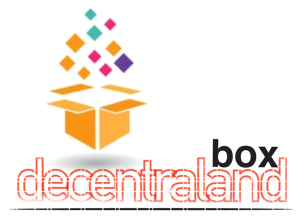The Metaverse: A Thriving Digital Economy in 2025
By 2025, the metaverse has transformed from a mere tech trend into a vibrant digital economy. Millions of users are actively engaging in immersive environments, making it increasingly feasible to earn income without stepping outside of virtual realms. Opportunities are multiplying rapidly, ranging from leasing digital properties to creating in-game assets and organizing virtual gatherings. Platforms such as Decentraland, Roblox, and The Sandbox are seeing a surge in methods to monetize user engagement each quarter.
The Significance of the Metaverse for Earning Opportunities
Metaverse economies thrive on decentralized principles, granting users ownership of their assets, the ability to trade in real currencies, and the chance to establish networks based on reputation. The convenience of mobile applications, like 1xBet, allows users to seamlessly access betting odds and matches from their smartphones, ensuring uninterrupted workflow in their virtual enterprises. This evolution has democratized the landscape for digital entrepreneurs, where creativity, persistence, and collaboration can lead to significant income generation.
Key Strategies for Income Generation in the Metaverse
Creatives who recognize the importance of value, community, and functionality are establishing steady income streams in the metaverse. Here are five effective strategies to capitalize on time spent in these virtual environments:
- Selling digital goods: This includes items like wearables, avatars, vehicles, and accessories for use in games and virtual settings.
- Renting virtual land or spaces: Owners can lease plots in platforms such as Decentraland, Voxels, or Sandbox to businesses or individuals requiring temporary access.
- Hosting virtual events: These can range from concerts and exhibitions to workshops and NFT launches.
- Gamification and reward systems: Users can earn tokens or rewards by completing tasks, quests, or contributing to play-to-earn games.
- Providing freelance services in the metaverse: This includes roles such as architectural design, event organization, avatar creation, or marketing.
Each of these methods utilizes specific tools and platform mechanics, but they generally emphasize personalization, scarcity, and digital ownership. With a solid grasp of community dynamics and consistent execution, these strategies can transform passive engagement into tangible profits.
Tools to Enhance Monetization and Passive Earnings
To optimize their presence in the metaverse, users often depend on third-party applications, bots, and management tools that facilitate tracking of inventory, payments, and interactions. Many creators also leverage social media platforms and automation to improve visibility and encourage repeat transactions. These supporting tools offer:
- Smart contract management for asset ownership and rental agreements
- Inventory synchronization across various games and metaverse ecosystems
- Royalty tracking for digital items and NFT resales
- Community tokens and reward schemes that enhance engagement
Maintaining connections is essential in these ecosystems. Many users juggle operations while keeping up with real-world happenings. For example, some metaverse entrepreneurs monitor live sports and statistics using apps like 1xBet, which provides Android users with quick access to in-app betting and live events, proving beneficial for those participating in both entertainment and digital commerce.
Success Stories: Profiting in the Metaverse
Real-life users are already finding success in generating income through the metaverse. Here are a few illustrative examples of this trend:
- Luisa, a 3D designer, makes over $4,000 monthly by selling custom wearables for avatars in The Sandbox.
- David, a landholder in Voxels, rents out his virtual gallery space for weekly art showcases, attracting sponsors.
- Carlos, a Spanish-speaking coach, conducts weekly sessions in VRChat, charging admission and providing NFTs as certificates.
- Marta, a gamification strategist, designs loyalty systems in play-to-earn ecosystems and receives a share of in-game token rewards.
These individuals did not begin as developers. As noted in a comprehensive guide on Moneycube, entering the metaverse world involves exploring avenues such as virtual real estate, NFTs, and stocks related to the metaverse. Many of them come from backgrounds in design, coaching, event planning, or digital art, demonstrating that soft skills can be effectively monetized when paired with Web3 platforms.
The Growing Viability of Earning in the Metaverse
In 2025, earning within the metaverse has moved beyond the realm of experimentation; it has become a viable avenue for creatives, freelancers, and virtual real estate investors. While achieving success hinges on familiarity with platforms and audience interaction, the resources and frameworks to generate income are more accessible than ever before. Whether one is renting a conference venue in Decentraland, crafting outfits for avatars, or designing interactive quests, the potential for monetization in virtual spaces is no longer restricted to developers. A smart approach, captivating content, and strong community ties are essential ingredients for thriving in this emerging landscape.

